Youth & Community


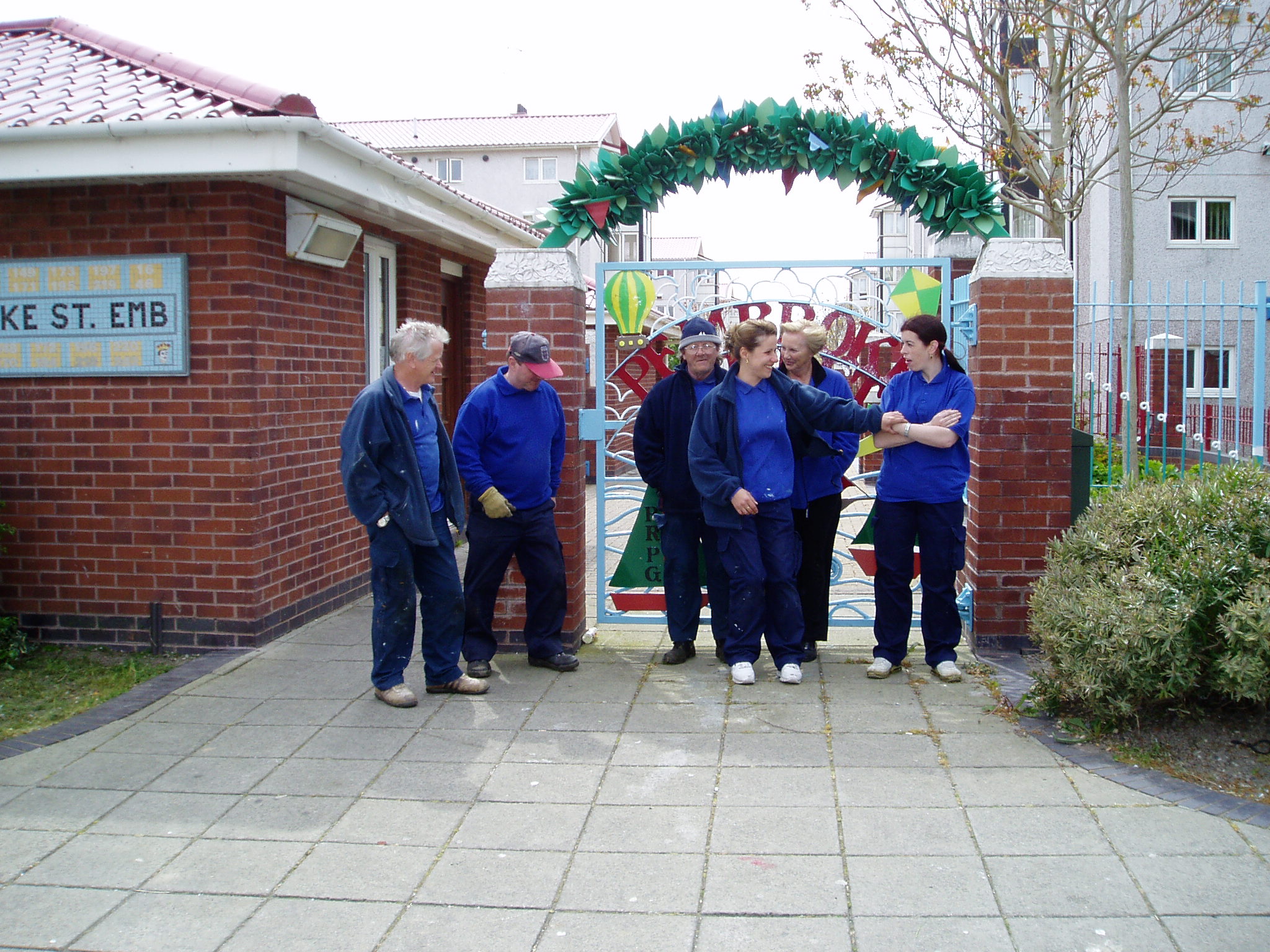
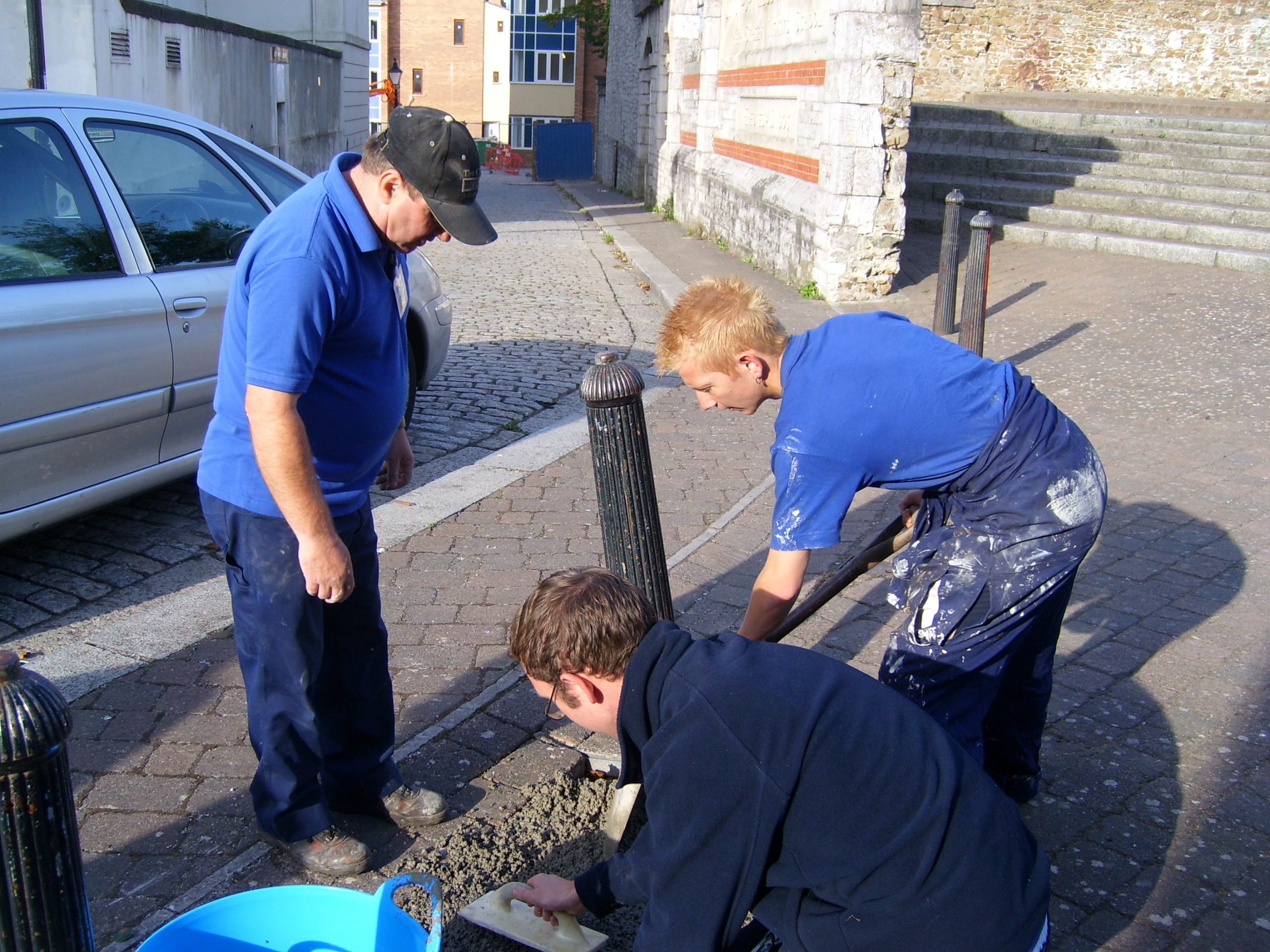
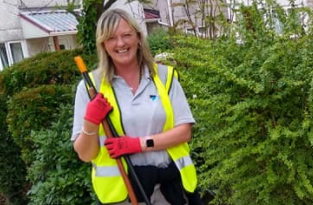
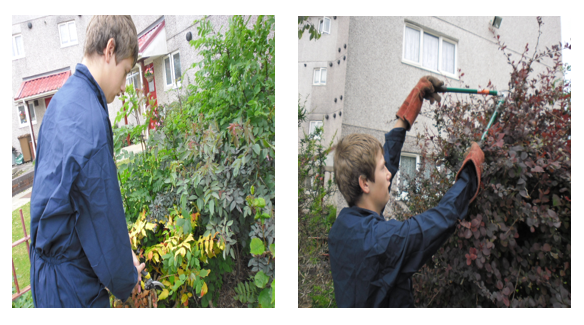
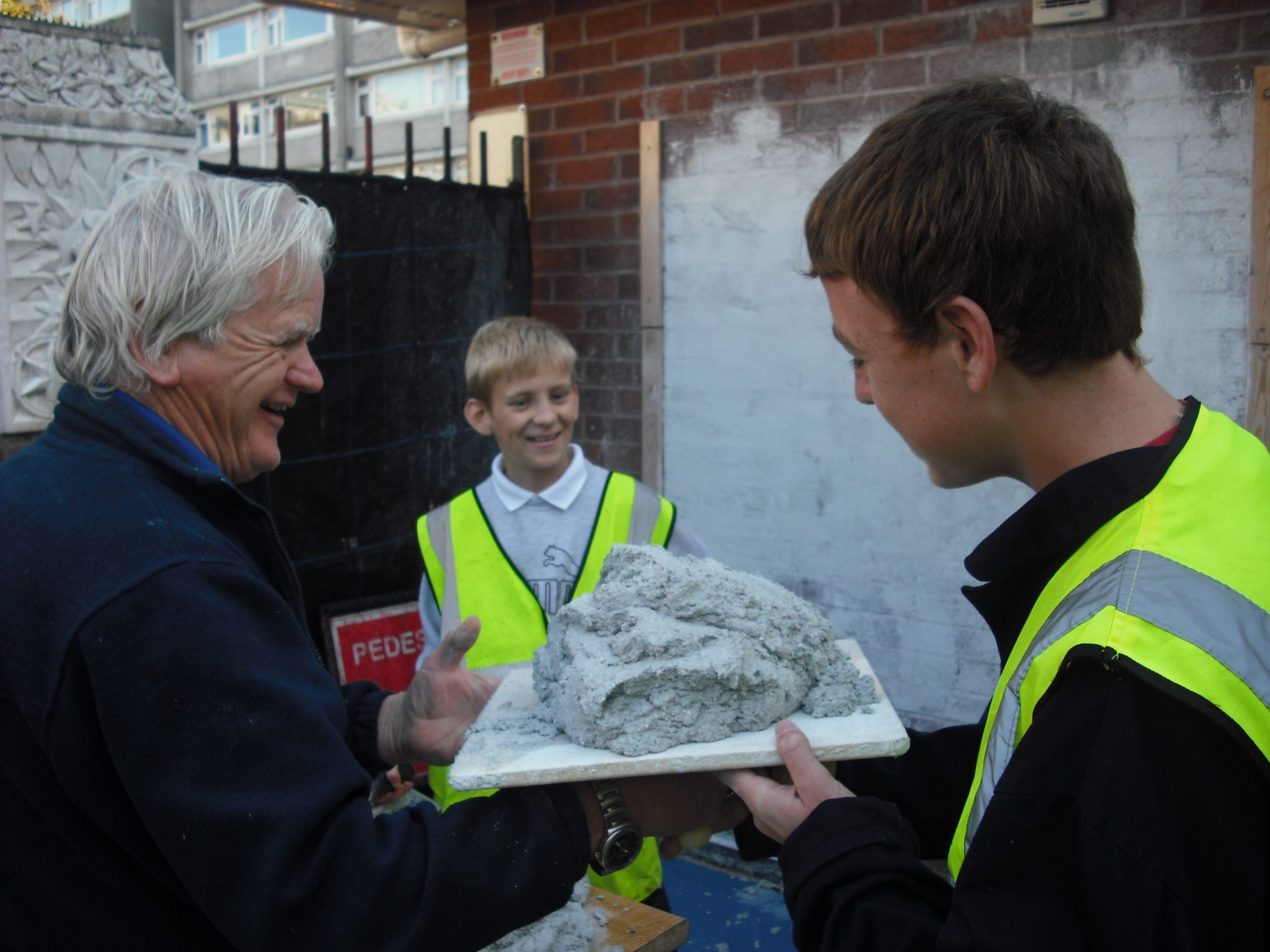
Pembroke Local Repair & Maintenance
A key strand of the EMB story and its reputation has been proactive repairs and maintenance. Prior to the refurbishment of Pembroke estate and the establishment of the EMB, the flats and environment were poorly maintained. A combination of vandalism and a lack of investment meant the neighbourhood looked shabby and forgotten. Doors hanging off their hinges, broken washing lines and leaking drainpipes were left for weeks and months. Graffiti and broken windows were not attended to promptly and the cycle of decline continued.
The fledgling EMB was very clear that one of the clear commitments would be to protect the investment in the properties. Scheduled preventative maintenance would be undertaken wherever possible and any response maintenance to deal with vandalism or other problems would be dealt with swiftly.
The EMB initially employed two local people to undertake repairs and maintenance. A full range of services were offered including response repairs in tenants flats as well as maintenance of communal spaces. The service also meant there was scope to offer a more personalised, flexible service for residents with – for example – timed appointments and the ability to offer to complete small DIY jobs for elderly residents. A commitment was made to clean all stairwells weekly and this service has been maintained ever since.
The EMB carries out a wide range of maintenance work all year round which has helped to protect the capital investment made in the 1990’s. Maintenance includes weekly cleaning of all stairwells, litter picking, sweeping and maintenance of planted areas. Any damage is repaired promptly.
Interest grew in the maintenance service after the EMB formed and in particular the potential to offer cost savings and boost local employment. In 1997, the Joseph Rowntree foundation funded the Priority Estates Project (PEP) to carry out research into the benefits of this approach. The EMB were featured as one of the main case studies which led to greater interest from regional and national policy makers. The report can be accessed here.
Work began to try to broaden the service to a wider geographical area in keeping with the EMB’s commitment to share the benefits with the wider community, so that more people could enjoy a locally delivered flexible and accountable service.
This work initially focussed on offering home support to residents who needed help with minor home improvements such as decorating, installing shelves and curtain rails.
Substantial funding for this expansion came from the ‘New Deal for Communities’ (NDC) regeneration programme which was administered by the Devonport Regeneration Community partnership. The NDC funding enabled PEMB to pilot new ways of working. This included:
- Tackling local ‘grotspots’ – public spaces that had fallen into disrepair. Often these were forgotten corners of land that weren’t maintained by the City Council and had allowed to decay. With concerted effort and a small amount of investment, these areas were able to be cleaned up and renewed.
- Recruiting local people as ‘Maintenance Worker’ apprentices in partnership with the Construction Industry Training Board (CITB) who completed college based NVQ training and on the job learning.
- Devising a business plan to aim to secure maintenance contracts with other providers.
The NDC programme funded two new repair and maintenance trainee posts which were ringfenced for local people to apply for. The postholders were managed by the Wolseley Trust as part of a city wider ‘intermediate labour market’ project assisted unemployed adults back into the workplace with a training wage and associated ‘on the job’ training.
Also at the time, ideas to develop a local ‘repair and maintenance’ training programme were floated on the basis of developing a trained workforce able to tender for contracts to maintain the new housing which was starting to be constructed across the area. The idea was to extend the EMB model to the wider area so that the ongoing maintenance of Devonport would be locally managed with corresponding accountability and employment creation.
The NDC programme funded PEMB to develop other pilot projects with a focus on:
- ‘care and repair’ providing small home safety and DIY improvements to vulnerable households
- Securing maintenance contracts with registered social landlords
- Training in repairs and maintenance for young people
These pilot projects were evaluated and modified. By 2005, PEMB had made progress on a number of fronts. Working in partnership with the Learning and Skills Council, the Construction Industry Training Board and the NDC programme, a number of projects strands took shape including:
- An accredited vocational training programme for unemployed adults on repairs and maintenance accredited by NOCN and AQA with adults referred by the Job Centre and other employment support organisations such as Working Links and Routeways. The training was delivered from a converted Devonport flat where courses in plastering, decorating and plumbing were offered.
- An accredited community based vocational training programme for young people not in mainstream education focussing on repairs and maintenance and employability skills. Referrals were made from Mount Tamar School, Brook Green Centre for Learning and Sir John Hunt Community College amongst others.
- Maintenance Contracts with local Social Landlords including Sovereign Housing, Sarsen Housing and Sanctuary Housing.
In time all of these project strands began to generate sustainable trading income. This also enabled trainees to gain valuable ‘on the job’ experience by shadowing existing members of staff and led to further employment creation as the number of contracts increased. Some of the adults furthest removed from the employment market secured paid work for the first time, either with the Pembroke Local Repair and Maintenance project or with other employers. Meanwhile, many young people achieved accredited outcomes which contributed towards a portfolio highlighting the skills they had gained.
At a time when Social Enterprise was becoming a recognised business model, this was proof that a business trading with a social purpose could work in this field. It also chimed with the Government’s ‘Together we Can’ civil action programme at that time and was featured in some of the Home Office national publicity and reports. (See link to Guide Neighbourhood programme) SEE PLRM LETTERS OF SUPPORT AND PHOTOS + NEWS ARTICLES
The PEMB went on to provide a successful programme of accredited learning for adults. Read more here.